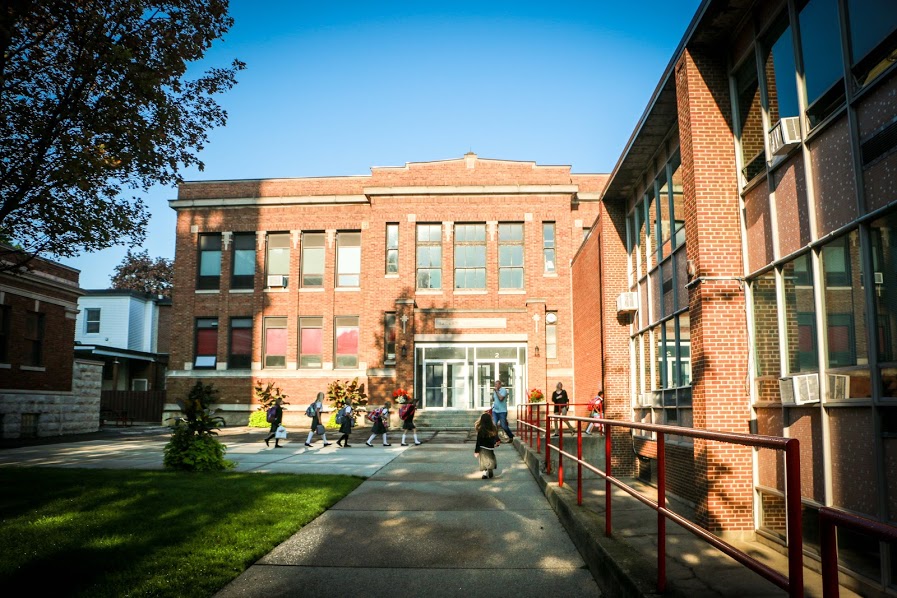Description: Michigan’s civil rights law, which state courts recently reinterpreted to include sexual orientation and gender identity, now requires religious organizations like Christian Healthcare Centers to hire people who do not share their faith, to prescribe cross-sex hormones to facilitate efforts to alter a patient’s biological sex, and to use pronouns that do not accord with a person’s biological sex. All of this violates Christian Healthcare Centers’ religious beliefs and undermines its ability to provide safe healthcare to the needy and the rest of the community.

6th Circuit delivers religious freedom victory to Michigan faith-based nonprofits
ADF attorneys represent Christian Healthcare Centers, Sacred Heart of Jesus Parish challenging discriminatory state law
Friday, Sep 20, 2024
CINCINNATI – The U.S. Court of Appeals for the 6th Circuit ruled Friday to allow the cases of a faith-based medical nonprofit and a parish and Catholic school to continue. Alliance Defending Freedom attorneys representing Christian Healthcare Centers and Grand Rapids-based Sacred Heart of Jesus Parish and several of its families asked the court to uphold the Michigan ministries’ constitutionally protected freedom to operate as religious organizations consistent with their beliefs in two separate cases.
“The Constitution is clear: Religious organizations have the freedom to operate and serve their communities according to their beliefs,” said ADF Senior Counsel Bryan Neihart, who argued before the court on behalf of Christian Healthcare Centers. “Rather than respecting Christian Healthcare’s religious motivations to provide quality care to all members of the community, Michigan state officials threatened to punish the ministry for living out its faith. And in the case of Sacred Heart of Jesus Parish, government officials can’t target faith-based organizations simply for adhering to their religious beliefs as both a federal district court and the U.S. Supreme Court have concluded in other cases. The 6th Circuit was right to allow these cases to proceed. Michigan officials should respect religious organizations’ constitutionally protected freedom to follow the very faith that has motivated them to serve others.”
The 6th Circuit ruled on both ADF cases, Christian Healthcare Centers v. Nessel and Sacred Heart of Jesus Parish v. Nessel. In its opinion, the 6th Circuit allowed the cases to continue, sending them back down to the federal district court for that court to decide on the ministries’ request to prevent Michigan from enforcing its law against them as their cases proceed. Michigan Attorney General Dana Nessel and other state officials are responsible for enforcing Michigan’s civil rights law.
Christian Healthcare is a faith-based nonprofit medical provider that offers high-quality healthcare to all of its members—including several members who identify as LGBT—while substantially reducing prices for patients with lower incomes who cannot afford quality care elsewhere. But Michigan’s law threatens to force Christian Healthcare to hire people who do not share their faith, to prescribe cross-sex hormones, and to use pronouns that do not accord with a person’s sex. The laws are also being used to prohibit Christian Healthcare from explaining its religious reasons for these choices to the public. All of this violates the ministry’s religious beliefs, burdens its ability to advance its religious mission, and undermines its ability to provide safe health care to its community.
Sacred Heart of Jesus Parish was founded more than a century ago by Polish immigrants. The parish-run academy exists to support parents in forming their children in the Catholic faith by providing a classical Catholic education and serves nearly 400 children from pre-K through 12th grade. The parents who joined the lawsuit all have children attending Sacred Heart Academy.
But Michigan’s law requires Sacred Heart of Jesus Parish and its school, Sacred Heart Academy, to hire faculty and staff who lead lives in direct opposition to the Catholic faith, speak messages that violate Church doctrine, and refrain from articulating Catholic beliefs in teaching its students and when advertising the school to prospective students or job applicants. The amendment also threatens the rights of parents—including the three families who have joined the lawsuit—who specifically chose to send their children to Sacred Heart Academy because the school aligns with their values and religious beliefs.
Alliance Defending Freedom is an alliance-building, non-profit legal organization committed to protecting religious freedom, free speech, parental rights, and the sanctity of life.
# # #